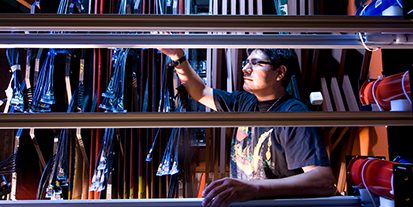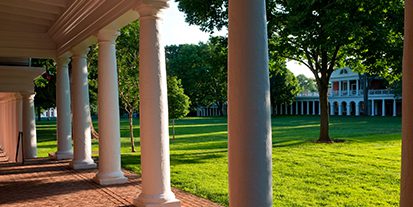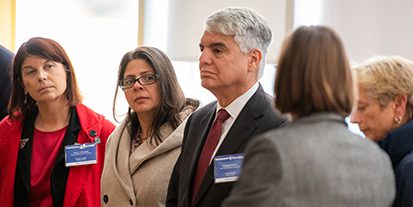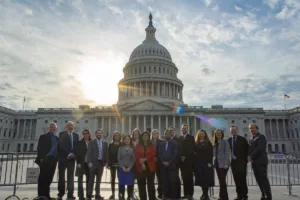June 16, 2016
For his work on the Dark Energy Survey, Alex Drlica-Wagner has earned the 2016 URA Tollestrup Award, which recognizes outstanding postdoctoral research at Fermilab or in collaboration with Fermilab scientists.
The Universities Research Association presented the award to Drlica-Wagner at the Fermilab Users Meetingon June 15. He received it for his “technical and scientific leadership within the Dark Energy Survey experiment,” according to a statement by the award committee.
“His far-reaching contributions include a new analysis that led to the discovery of new dwarf galaxy satellites of the Milky Way and stronger constraints on the properties of dark matter,” said Tollestrup Award Committee Chair Michael J. Mulhearn of the University of California, Davis.
Drlica-Wagner’s work involves collecting and analyzing images taken by DES’ Dark Energy Camera. Drlica-Wagner uses the data to discover new dwarf galaxies, which are the most dark matter-rich objects in the universe. The discovery of new dwarf galaxies allows researchers to better understand the distribution of dark matter in and around our galaxy.
The technique Drlica-Wagner uses to analyze the images combines information about the spatial distribution of stars with information about their color and brightness. This technique improves upon previous ones in order to detect fainter dwarf galaxies.
From data collected in the first two years of DES, Drlica-Wagner and his team have found 15 dwarf galaxy candidates, which would almost double the number of known dwarf galaxies around the Milky Way.
After finding new dwarf galaxies, Drlica-Wagner analyzes them using data from the Fermi Gamma-ray Space Telescope. The data allow researchers to probe the particle properties of dark matter, such as its mass and the way it interacts with normal matter. The results enable scientists hone our understanding of the matter that makes up about 85 percent of the mass of the universe.
“Dwarf galaxies are amazing objects for understanding the nature of dark matter,” Drlica-Wagner said. “I feel extremely lucky to be working on DES at such an exciting time.”
DES has two more years of data collection, and Drlica-Wagner hopes to use the data to find even fainter and more dark matter-dominated dwarf galaxies.
“The URA Tollestrup Award was established to honor the highest-quality work,” said URA Executive Director Marta Cehelsky. “It is a pleasure to confer it on Alex Drlica-Wagner.”
Drlica-Wagner said he was thankful for the honor.
“Alvin Tollestrup is known for pushing the boundaries of experimental particle physics,” Drlica-Wagner said. “I am very excited to receive an award named in his honor.”






